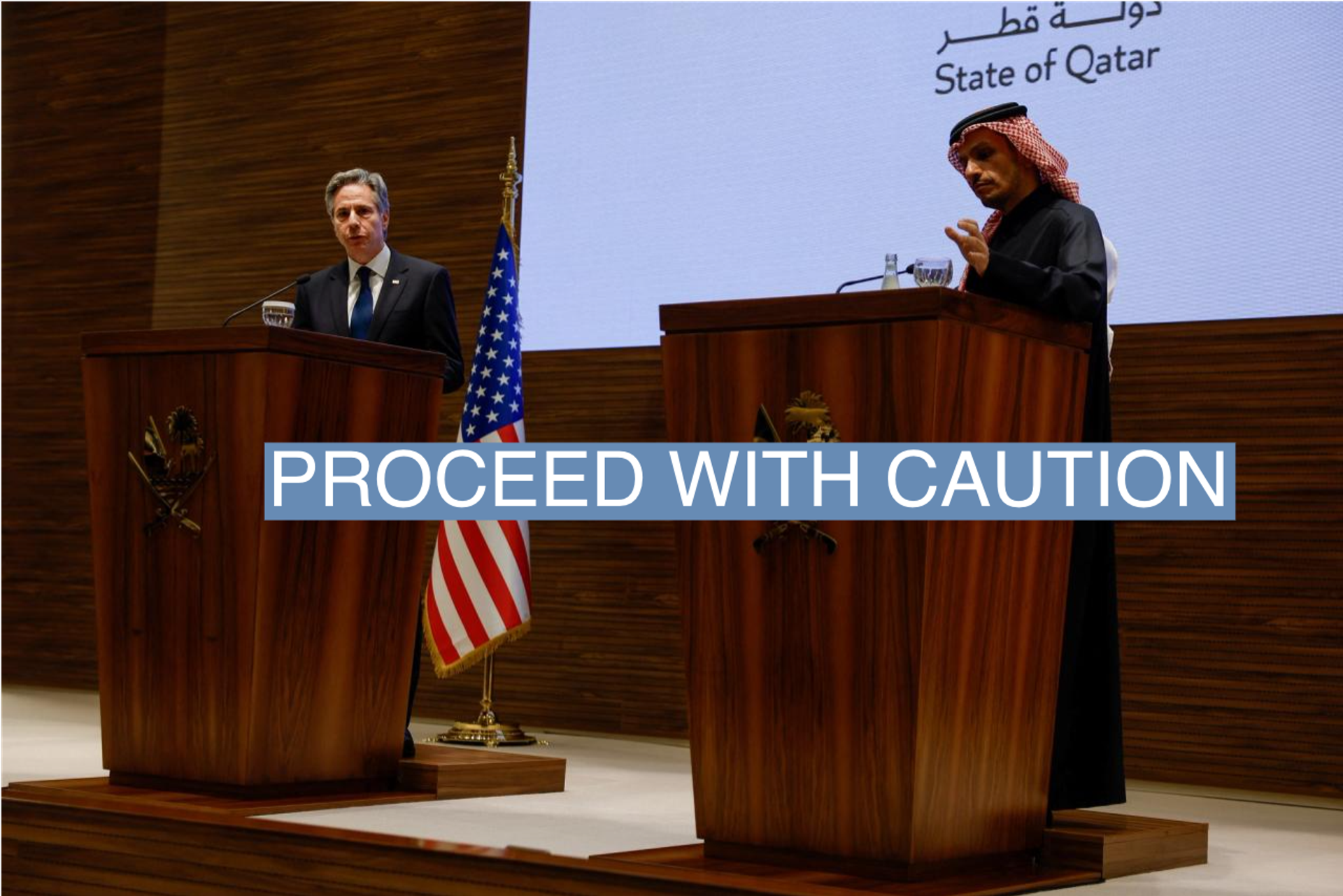The News
Qatar on Monday warned Washington that any retaliatory strike on Iran would hurt delicate negotiations to release more than 100 hostages still held in Gaza.
Iran has denied any direct involvement in the Sunday drone attack that killed three U.S. soldiers and injured dozen others near the Jordan-Syria border, but U.S. and international intelligence suggests Tehran’s proxy military groups across the Middle East are fighting to end U.S. military presence in the region.
Iran knows it cannot risk a direct war with the U.S., analysts said, but a direct strike against Iranian military targets could fuel a regional war which would only prolong the bombardment of Gaza and risk destabilizing crucial U.S. allies in the region.
SIGNALS
If Biden gives in to political pressure, he risks setting off a ‘mega-bomb’ in the Middle East
With many Republicans raring to castigate President Biden for any signs of a weak response to the deadly Jordan strike, Biden “may not be able to resist” political pressure to hit back at Iran ahead of an election that he could potentially lose to the likely GOP nominee Donald Trump, wrote The Guardian’s foreign affairs columnist Simon Tisdall. But doing so would set off a “mega-bomb” in the Middle East that risks igniting a wider regional war and alienating Washington from its European allies, he argued.
Not only would a direct military strike against Iran extend the Gaza conflict, it could provoke Hezbollah to openly attack Israel, exacerbate the situation in Iraq and Syria, and threaten the political stability of friendly countries like Egypt and Jordan, Tisdall wrote. It could also create lasting divisions between western democracies, such as the UK — which would back the U.S.— and others like France, Germany, and Italy who prefer diplomatic means of dealing with Iran. Instead of succumbing to political pressure, “Biden must exercise all possible restraint,” Tisdall opined, by calling for an immediate ceasefire in Gaza and pushing for a two-state solution once and for all.
Any retaliatory measures would provoke Tehran into driving the US out of the region
“There are not that many rungs left on the escalation ladder that don’t involve Iran,” one analyst told Al-Monitor, and the Biden administration is running out of retaliatory options that wouldn’t further provoke Tehran. The U.S.′ strikes on arms facilities used by Iran-backed militias like the Houthis have had little deterrent effect, as Biden himself has conceded. The few remaining options will involve “crossing the threshold” Al-Monitor wrote, including direct strikes against Iranian bases or personnel in Syria or Iraq, or even military targets on Iranian territory. But sources told Al-Monitor that U.S. intelligence knows that any of these attempts would provoke Tehran into targeting U.S. bases in the region, with the eventual goal of driving them out from the region. “The Iranians have a strategy, and we don’t,” a former senior U.S. Defense Department official told the outlet.
Netanyahu’s insult of Qatar risks isolating Israel and impacting hostage negotiations
Recently leaked audio reportedly caught Israeli Prime Minister Benjamin Netanyahu calling Qatar “no different” than the United Nations, whose Palestinian aid agency is now under fire after Israel alleged its employees’ involvement in the Oct. 7 Hamas attacks. A former Mossad director called Netanyahu’s insult “puzzling” given that the prime minister is aware that if Qatar leaves “the negotiating table” Israel “would be left without effective mediating” to release hostages and de-escalate the conflict in Gaza and the wider region. But Netanyahu’s antagonization of Qatar also places Israel “on a collision course” with the U.S., according to a Haaretz columnist, who argued that Washington could ultimately abandon supporting Israel’s military campaign in Gaza in favor of helping Qatar and other Arab allies contain Iran.

